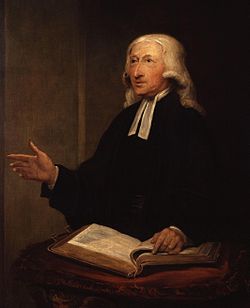Christians around the world are journeying together in a variety of ways, recalling the final days of Jesus' life, from his "triumphal entry" (or anti-empire protest march) into Jerusalem, through the celebration of the Passover meal with his disciples, through his arrest, trial, and crucifixion.
It is a week that many experience as heavy with meaning and remembrance, overshadowed by the betrayal, violence, fear, and grief that Jesus and his followers experienced. In my five years in pastoral leadership in the local church, and twelve years of worship design and leadership, it was always one of the hardest and most sacred times to be a leader of the Christian community. The darkness becomes almost palpable, even two thousand years later, even for those of us living in comfort and affluence, even when the weather is sunny and warm, even when we know how the story ends.
It is the week that changes everything.
 |
| Artwork is mixed media collage, created by Jessica Miller Kelley in 2006, photographs ©2013. Downloaded from MinistryMatters.com. |
Because on Sunday, after all that darkness and sorrow, we rise to the Good News that Christ is alive and goes before us. We remember those long-ago disciples and their experience of Resurrection, and we celebrate the truth that hate and fear do not have the final word; love does. Evil may seem to be all around, but ultimately, good triumphs. Death is still and always a reality in our world, but it is not the deepest reality: Life is what God desires, life abundant and eternal, life transformed by love, life made in the image of our Creator, life expressed by following in the footsteps of our Redeemer, life sustained by the nourishment and guidance of the Holy Spirit, that blows where it will and cannot be stopped or restrained.
This is a Holy Week, and it is right to make time for prayer and worship with the gathered community to recall and proclaim these stories, these experiences, together.
But even in the midst of this holy time, there is work to be done: reports to write, children to pick up from school, data to analyze, buildings to construct, food to prepare, seeds to plant, burst pipes to repair... bed nets to hang, rapid diagnostic kits to distribute, community health workers to train, school children to educate, medications to administer, radio programs to broadcast, funds to raise, communities to engage, voices to lift up on behalf of the voiceless, to speak out for those who are poor and vulnerable, to cry out for justice and proclaim the good news of God's love, of God's desire for abundant life for all people.
In the midst of this Holy Week, may your work - paid or volunteer, professional or personal - become part of the ongoing ministry of Jesus, to proclaim the good news and to build the kin'dom of heaven, the reign of God's love and justice in our midst, here and now, making Resurrection and abundant life possible for all people and all creation.
And if you'd like to join us in partnering with the people of Africa to make abundant life more accessible for millions of God's children by eliminating preventable deaths from malaria, call 303-733-3736 x152 or email kerry [at] rmcumc [dot] com. Death will not have the final word, this week or for generations to come.







